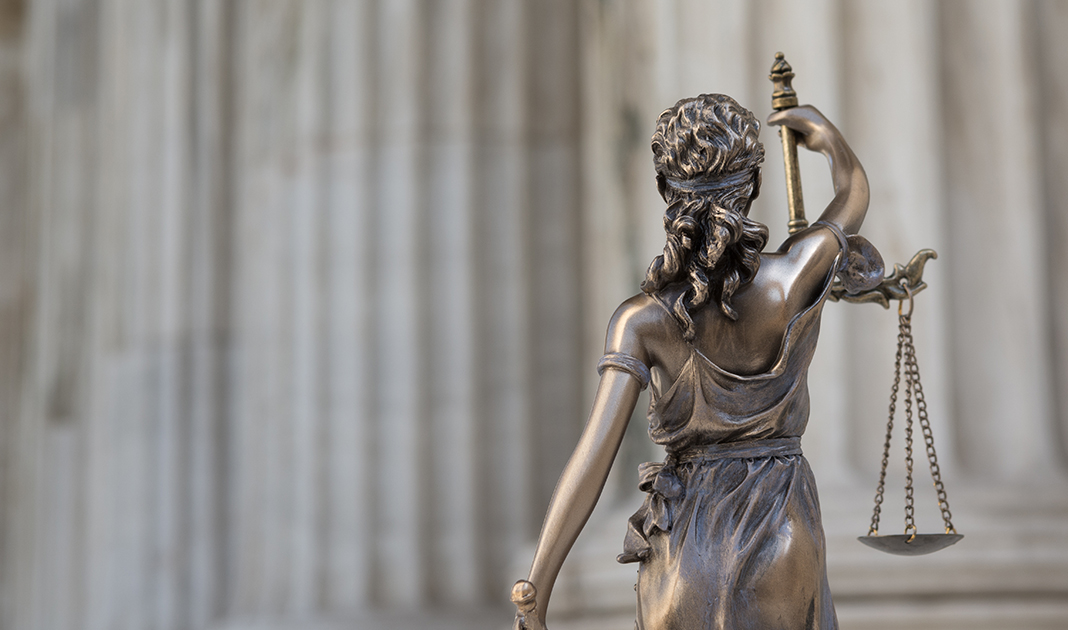Status of Action in Michigan
June 2025
Status – The Michigan Supreme Court is considering amending Rule 6.5 of the Michigan Rules of Professional Conduct to prohibit bias, prejudice, and harassment by attorneys.
On June 30, CLS submitted its comment letter to the Michigan Supreme Court urging the justices not to adopt that proposed amendment to Rule 6.5.
March 2025
On March 6, 2025, the Michigan Supreme Court issued notice that the court was considering amending Rule 6.5 of the Michigan Rules of Professional Conduct.
Proposed Rule 6.5 would prohibit an attorney from “by words or conduct manifest[ing] bias or prejudice for or against any person involved in the legal process, or engag[ing] in harassment against any person involved in the legal process, based upon race, color, sex, gender identity or expression, religion, national origin, ethnicity, disability, age, height, weight, sexual orientation, marital status, familial status, socioeconomic status, or political affiliation.”
The proposed amendment—which seeks to prohibit bias, prejudice, and harassment—is modeled on ABA Model Rule 8.4(g). Because the proposed rule changes in Michigan resemble ABA Model Rule 8.4(g), the same reasons why ABA Model Rule 8.4(g) should be rejected apply equally to Proposed Rule 6.5.
The Michigan Supreme Court is accepting comments through July 1, 2025. Comments may be sent by email to [email protected] or by mail to P.O. Box 30052, Lansing, Michigan, 48909. Comments may also be submitted by clicking on the “Comment on this Proposal” link under this proposal on the Court’s Proposed & Adopted Orders on Administrative Matters page. When submitting a comment, please refer to ADM File No. 2023-35.
Comment by email or using the link above urging the court to reject the proposed rule amendments. The comment could simply say: “I oppose adoption of the proposed amendments to Rule 6.5 because they threaten the First Amendment rights of Michigan attorneys. Existing Michigan Rules of Professional Conduct Rule 8.4(d) already adequately addresses prejudicial conduct. I respectfully request the court reject the proposed amendments.”
Another option includes drafting your own letter using the language in this document (or language found on the CLS ABA Model Rule 8.4(g) website) and emailing it to the above email address.
The Michigan Supreme Court will hold a public hearing on the proposed rule changes. The hearing has not yet been scheduled. The notices and agenda for each public hearing are posted on the Public Administrative Hearings page.
Proposed Rule Changes in Michigan
Proposed Rule 6.5
(a) A lawyer shall not, by words or conduct manifest bias or prejudice for or against any person involved in the legal process, or engage in harassment against any person involved in the legal process, based upon race, color, sex, gender identity or expression, religion, national origin, ethnicity, disability, age, height, weight, sexual orientation, marital status, familial status, socioeconomic status, or political affiliation, and to the extent possible, a lawyer shall not permit subordinate lawyers and nonlawyer assistants to do so.
(b) A lawyer serving as an adjudicative officer, shall not, by words or conduct manifest bias or prejudice for or against any person, or engage in harassment against any person, based upon race, color, sex, gender identity or expression, religion, national origin, ethnicity, disability, age, height, weight, sexual orientation, marital status, familial status, socioeconomic status, or political affiliation and to the extent possible, the lawyer shall not permit staff and others who are subject to the adjudicative officer’s direction and control to do so to persons who have contact with the adjudicative tribunal.
Proposed Comment: Duties of the Lawyer.
[Paragraph 1 unchanged.]
A lawyer must pursue a client’s interests with diligence. This often requires the lawyer to frame questions and statements in bold and direct terms. The prohibition against manifesting bias or prejudice or engaging in harassment is not inconsistent with the lawyer’s right, where appropriate, to speak and write bluntly. Obviously, it is not possible to formulate a rule that will clearly divide what is properly challenging from what is impermissibly biased, prejudicial, or harassing. A lawyer’s professional judgment must be employed here with care and discretion.
[Paragraphs 3-4 unchanged.]
A supervisory lawyer should make every reasonable effort to ensure that subordinate lawyers and nonlawyer assistants, as well as other agents, avoid biased, prejudicial, or harassing behavior toward persons involved in the legal process. Further, a supervisory lawyer should make reasonable efforts to ensure that the firm has in effect policies and procedures that do not discriminate against members or employees of the firm on the basis of the attributes identified in the rule. See Rules 5.1 and 5.3.
Current Rule 6.5
(a) A lawyer shall treat with courtesy and respect all persons involved in the legal process. A lawyer shall take particular care to avoid treating such a person discourteously or disrespectfully because of the person’s race, gender, or other protected personal characteristic. To the extent possible, a lawyer require subordinate lawyers and nonlawyer assistants to provide such courteous and respectful treatment.
(b) A lawyer serving as an adjudicative officer shall, without regard to a person’s race, gender, or other protected personal characteristic, treat every person fairly, with courtesy and respect. To the extent possible, the lawyer shall require staff and others who are subject to the adjudicative officer’s direction and control to provide such fair, courteous, and respectful treatment to persons who have contact with the adjudicative tribunal.
Current Comment: Duties of the Lawyer.
[Paragraph 1 unchanged.]
A lawyer must pursue a client’s interests with diligence. This often requires the lawyer to frame questions and statements in bold and direct terms. The obligation to treat persons with courtesy and respect is not inconsistent with the lawyer’s right, where appropriate, to speak and write bluntly. Obviously, it is not possible to formulate a rule that will clearly divide what is properly challenging from what is impermissibly rude. A lawyer’s professional judgment must be employed here with care and discretion.
[Paragraphs 3-4 unchanged.]
A supervisory lawyer should make every reasonable effort to ensure that subordinate lawyers and nonlawyer assistants, as well as other agents, avoid discourteous or disrespectful behavior toward persons involved in the legal process. Further, a supervisory lawyer should make reasonable efforts to ensure that the firm has in effect policies and procedures that do not discriminate against members or employees of the firm on the basis of race, gender, or other protected personal characteristic. See Rules 5.1 and 5.3.
Current Rule 8.4 Misconduct
It is professional misconduct for a lawyer to:
(a) violate or attempt to violate the Rules of Professional Conduct, knowingly assist or induce another to do so, or do so through the acts of another;
(b) engage in conduct involving dishonesty, fraud, deceit, misrepresentation, or violation of the criminal law, where such conduct reflects adversely on the lawyer’s honesty, trustworthiness, or fitness as a lawyer;
(c) engage in conduct that is prejudicial to the administration of justice;
(d) state or imply an ability to influence improperly a government agency or official; or
(e) knowingly assist a judge or judicial officer in conduct that is a violation of the Code of Judicial Conduct or other law.
Current Comment
Many kinds of illegal conduct reflect adversely on fitness to practice law, such as offenses involving fraud and the offense of wilfull failure to file an income tax return. However, some kinds of offenses carry no such implication. Traditionally, the distinction was drawn in terms of offenses involving “moral turpitude.” That concept can be construed to include offenses concerning some matters of personal morality, such as adultery and comparable offenses, that have no specific connection to fitness for the practice of law. Although a lawyer is personally answerable to the entire criminal law, a lawyer should be professionally answerable only for offenses that indicate lack of those characteristics relevant to law practice. Offenses involving violence, dishonesty, breach of trust, or serious interference with the administration of justice are in that category. A pattern of repeated offenses, even ones of minor significance when considered separately, can indicate indifference to legal obligation.
A lawyer may refuse to comply with an obligation imposed by law upon a good-faith belief that no valid obligation exists. The provisions of Rule 1.2(c) concerning a good-faith challenge to the validity, scope, meaning, or application of the law apply to challenges of legal regulation of the practice of law. See also Rule 3.4(c).
Lawyers holding public office assume legal responsibilities going beyond those of other citizens. A lawyer’s abuse of public office can suggest an inability to fulfill the professional role of attorney. The same is true of abuse of positions of private trust such as trustee, executor, administrator, guardian, agent, and such as officer, director, or manager of a corporation or other organization.





